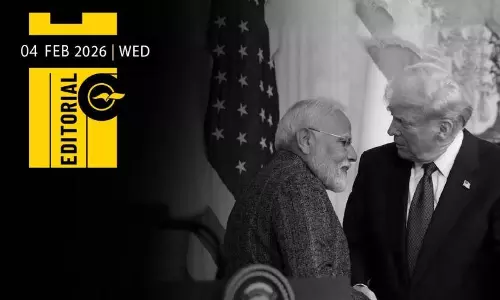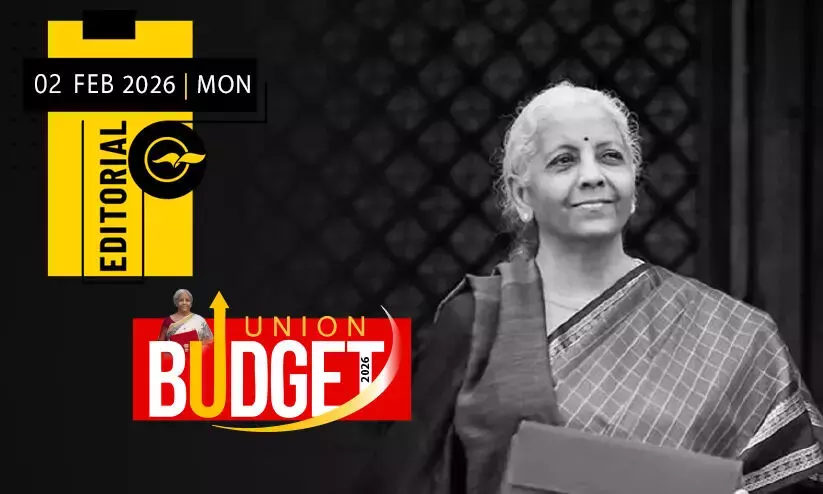
From pillar to fault line: how Gaza is splintering the American right
text_fieldsFor much of the past half-century, support for Israel served as a rare point of consensus across the American right. Evangelical Christians viewed Israel as the fulfilment of biblical prophecy. Neoconservatives praised it as a democratic bulwark in the Middle East. And populist conservatives saw it as a partner in the “war on terror.” But the latest Gaza war has ruptured that consensus.
Once a pillar, Israel is now a political fault line.
A Shifting Republican Base
The Israel-Gaza war, which has led to massive destruction, tens of thousands of Palestinian deaths, and mounting global outrage, is exposing fractures long brewing within the GOP. Among grassroots voters, especially younger and online conservatives, there is growing skepticism about foreign aid, especially to countries entangled in war and accused of human rights abuses.
According to a 2024 Ipsos/Reuters poll, over 40% of Republicans under 35 believe U.S. military aid to Israel should be reduced or halted. While older Republicans and establishment figures still maintain staunch support, the divide is growing.
This isn’t merely about policy. It’s about identity, priorities, and a shifting definition of what it means to be “conservative” in 21st-century America.
Tucker Carlson’s Break with Orthodoxy
Tucker Carlson, perhaps the most influential right-wing media figure in post-Fox News America, has emerged as a leading dissenter. He has sharply criticized U.S. military and financial support for Israel and questioned the wisdom of “blank-check” foreign policy. On his show, he has argued that American involvement in the Middle East has done more harm than good, citing the long wars in Iraq and Afghanistan as cautionary tales.
Carlson has gone further than most, explicitly calling on the U.S. to “drop Israel". While his critics accuse him of courting antisemitic tropes or pandering to online extremists, Carlson frames his argument in terms of American self-interest: “How does this help the American people?” he asks.
His audience—millions strong and disproportionately young—appears receptive.
Candace Owens and the Cost of Dissent
Candace Owens, a prominent Black conservative commentator, found herself ostracized by many on the right after condemning Israel’s conduct in Gaza. She posted images of Palestinian children killed in Israeli airstrikes and criticized the conservative movement’s silence. Owens said that true conservatism must uphold human dignity and oppose “collective punishment.” The fallout was swift—she lost deals, drew attacks from pro-Israel conservatives, and was denounced by several GOP figures.
But she stood firm, claiming the right had “sold its soul” on foreign policy.
Milo, Bannon, and Greene: Strange Allies
Milo Yiannopoulos, once a provocateur exiled from polite political company, has re-emerged in far-right circles by blasting “Zionist influence” in conservative media. While his rhetoric is inflammatory and often conspiratorial, it reflects a current of dissatisfaction among online MAGA influencers who view U.S. support for Israel as contrary to “America First” principles.
Steve Bannon, architect of Trumpism, has not openly broken with Israel, but he has amplified voices calling for non-interventionism and argued that “foreign entanglements” threaten national sovereignty. He recently hosted guests on his War Room podcast questioning the U.S. role in the conflict and accusing the “uniparty” of funding endless war.
Marjorie Taylor Greene, one of the most controversial members of Congress, has also questioned aid to Israel—despite previously touring illegal settlements in the West Bank. In a recent post, she said: “We cannot continue writing blank checks while Americans suffer.” Her remarks reflect a populist realignment—less about humanitarian concern, more about national priorities.
Social Media and the New Frontlines
X (formerly Twitter), right-wing podcasts, and Telegram groups are buzzing with debates once considered heretical in conservative spaces. Memes critical of Israel, clips of pro-Palestinian speeches, and takedowns of GOP hawks circulate widely among the online right. These conversations, once limited to fringe libertarians or leftists, are now mainstream among a new generation of conservatives shaped more by anti-globalism than religious dogma.
Many frame their critique of Israel not in moral terms, but through an anti-elitist, anti-establishment lens: Israel is increasingly seen as part of the “globalist” project—benefiting from U.S. tax dollars while entangling America in endless war.
The Price of Speaking Out
Yet dissent comes at a cost. Conservative media personalities who criticize Israel often face immediate backlash. Accusations of antisemitism, lost contracts, and social ostracization are common. A recent Media Matters report showed a spike in conservative figures being de-platformed or attacked after posting pro-Palestinian content.
This has created a paradox: a movement that claims to champion free speech increasingly finds itself enforcing ideological conformity—especially when it comes to Israel.
Strategic Implications
The implications are far-reaching. For decades, Israel functioned as the ideological glue binding evangelicals, neoconservatives, and populists. Gaza has turned that glue into fissures. A future Republican coalition may no longer be united in its foreign policy outlook. Instead, America Firsters may demand conditional aid, reduced entanglements, and policy based solely on perceived domestic benefit.
This could alter U.S. foreign policy more broadly. It also has implications for allies like India, which has grown close to both the U.S. right and Israel in recent years. If the American right turns inward, global partners could find themselves caught in new calculations.
Conclusion: Gaza as a Political Earthquake
The war in Gaza has done more than spark protests and international legal scrutiny. It has catalyzed a profound ideological reckoning within the American right. What was once a litmus test—unquestioning support for Israel—is now contested terrain. Figures like Tucker Carlson, Candace Owens, and others are forcing uncomfortable conversations. And while the motivations may vary—from principled opposition to endless war to raw populist resentment—the result is the same:
Israel is no longer immune to criticism in conservative America. The consequences of that shift are just beginning to unfold.
























